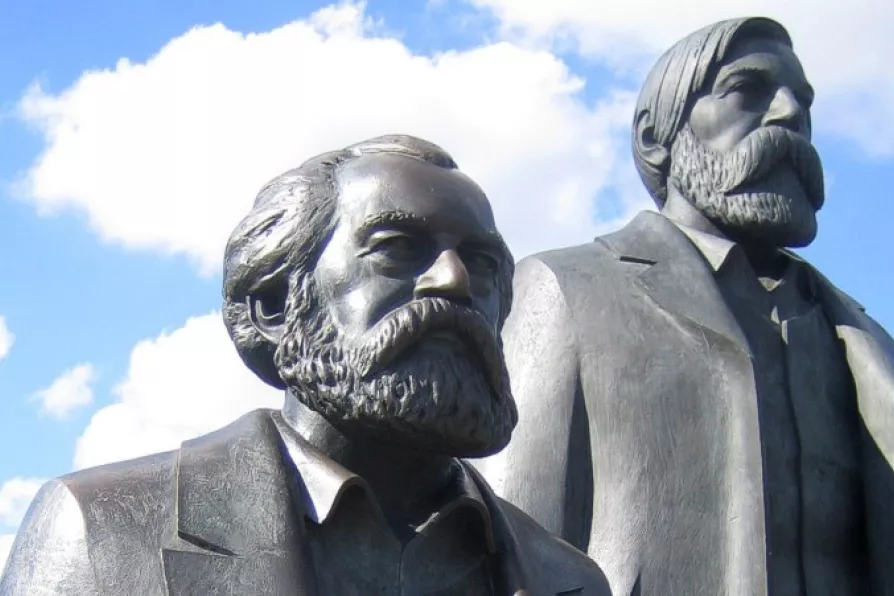As tens of thousands return to the streets for the first national Palestine march of 2026, this movement refuses to be sidelined or silenced, says PETER LEARY
Friedrich Engels: organiser, thinker and joint author of the Communist Manifesto
JOHN FOSTER pays tribute to Friedrich Engels on the 200th anniversary of his birth

 Engels (right) with Marx, statue in Berlin
[Manfred Bruckels/cc]
Engels (right) with Marx, statue in Berlin
[Manfred Bruckels/cc]
IN CELEBRATING the 200th anniversary of the birth of Friedrich Engels it is difficult to overestimate his contribution both to the development of the international working-class movement or to Marx’s own theoretical work and its wider dissemination.
Engels was an organiser. He was a profound critic of capitalist society. He developed a pathbreaking analysis of the origins of class societies and of gender relations.
And he did this in a close working partnership with Marx — a partnership that ensured Marx’s own work of transcendent genius was fully preserved and made available to our movement.
First and foremost, I want to stress the importance of Engels’s first book The Condition of the English Working Class.
Similar stories

The left must confront both far-right bigotry and the undeniable problems the exploitation of migrant workers by the ruling class creates — but there are few lessons from the global left on how to strike this balance, laments NICK WRIGHT

Lenin’s theory of the weakest link shifted the centre of gravity of the proletarian revolution towards peoples’ struggles in the developing world, contrary to the expectation of Marx and Engels. The effect was to hinder the cause of socialism by decades. Time bring it back to its natural home, argues FAWZI IBRAHIM












